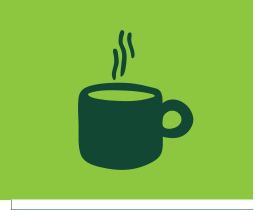Resources for Families


Know what to look for
If you’re wondering whether a friend or loved one might have a gambling problem, there are warning signs to look for. The more signs a person shows, the greater the likelihood that he or she may have lost control of their gambling. Here are some signs of problem gambling:
• Gambling for longer and longer periods of time
• Lying about how much or how often they gamble
• Missing work or school to gamble
• Neglecting personal or family responsibilities to gamble
• Using gambling as an escape
• Gambling with money needed for paying bills
• Spending more money to recoup losses

Support for seniors
Many older adults participate in gambling for social connection, entertainment, and replacing time that used to be spent at work. Gambling can be an exciting way to spend a morning or afternoon, as long as it’s done in moderation.
The best way to help your loved one is to check in with them often, have a conversation. Research shows that older adults are the least likely demographic to seek help or support.
If you need help starting the conversation, try some of these strategies:
• Lead with: “I noticed you’ve been going to the casino more often than you used to, what’s changed?”
• Ask them about the games they are playing
• Ask them about their other hobbies and look for ways to encourage them to take breaks or do other things and not just gambling
• Call the national problem-gambling helpline at 1 (800) 522-4700 or the state helpline at 1-800-GAMBLER.
Support for a spouse or loved one
The best way to support a partner who may have a gambling problem is to have an open conversation about it. Here are a few tips to help you get started:.
• Prepare examples of how the person’s gambling has had a negative impact on you and others.
• Remember that the person is not the problem. His/her behavior is the problem. Many problem gamblers already feel vulnerable. Try not to use judgmental language, as this may only make the person defensive.
• Find the right resources if the person is open to getting help.
Let them know you will support them in their efforts to regain control.
Kids and gambling
Did you know that kids are more likely to gamble than to drink, smoke, or do drugs? Despite their propensity to gamble, kids are far less prepared to handle and understand the risks of gambling. That’s why it’s important to start the conversation early. Here’s how to prepare yourself:
• Go through the website and learn as much as you can about the games they are playing, the key concepts and common gambling myths.
• Talk to them about the difference between skill-based games, where practice pays off (video games and sports), and gambling, where the outcome is random and chance-based (slots and the lottery).
• Practice healthy and responsible gambling habits yourself.
• Kids are exposed to gambling images almost every day — from the corner store that sells lottery tickets to TV ads for poker and the local casino.
• Scratch & Win tickets, poker and sports betting are among the most popular gambling activities for kids under 18.
• Kids who say their parents have gambled in the past year are significantly more likely to participate in gambling activities themselves.
If you’re concerned that your child might have a gambling problem, there are signs which could indicate a gambling problem. Keep an eye out if he or she:
• Has friends who gamble regularly
• Is obsessed with the results of professional sporting events
• Is often playing around with dice, playing cards or lottery tickets
• Lies or is secretive about gambling activities
• Borrows or takes money from others to gamble
• Money or possessions go missing from the house
For further information visit www.youthgambling.com

Managing online content
While most online gaming services attempt to prevent children from accessing their services, these services are not child-proof. If you’re a parent, you can incorporate content-filtering software to help prevent your kids from accessing online gambling sites. Read on for different options.
Content-filtering software
Content-filtering software is designed to help control what internet content and resources users have access to. It can be applied to any computer to prevent access to websites with objectionable content, including gambling and gaming. It can employ password protection so that certain individuals are blocked from accessing specific content. Some programs even allow users to limit the amount of time spent on the internet.
How to find content-filtering software
There are many content-filtering and parental control products available on the internet. An internet search will reveal a variety of providers, options and information on these tools. Try using search keywords such as:
• "Content Filtering Software"
• "Parental Control"
• "Internet Blocking Software"